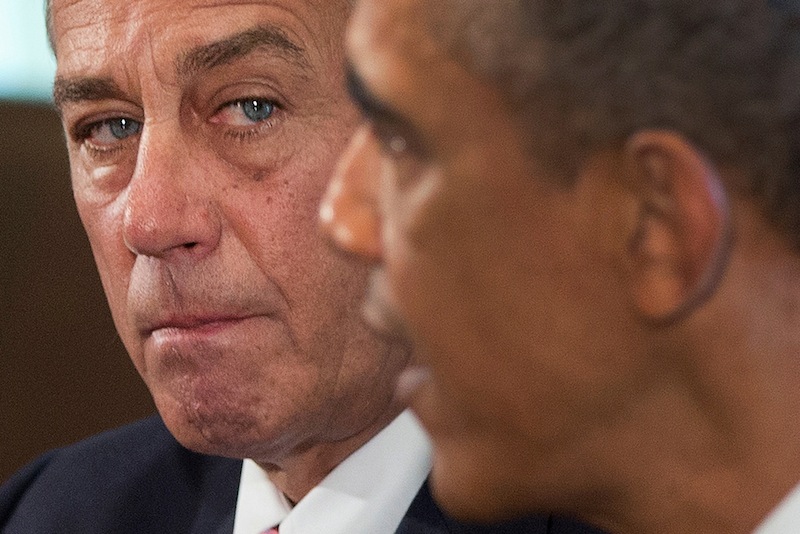With the American public largely blaming the House GOP for closing the federal government, they’re looking for politically expedient programs to fund — often programs they’ve criticized in the past — to try to shift the shutdown heat to Democrats.
That’s the cognitive dissonance of the House GOP’s shutdown plan. The party of small government has now suddenly found a broad slate of government programs that it wants to fund.
Over the last week, the House has passed multiple partial spending bills to fund the most popular elements of the federal government: National parks. Cancer research. Veterans benefits. Disaster relief. More are coming. The Senate isn’t moving on any of them, instead insisting that the House vote to fund the entire government.
“We have committed to fund the areas of government that we all agreed on, which is more areas than not. We’re trying to ease the pain here. They’re not joining us,” House Majority Leader Eric Cantor (R-VA) said Saturday. “We’re saying we’ve got a lot that we have in common.”
House GOP aides, though, privately acknowledge the politics of their strategy: Fund programs that the public doesn’t want closed and force Democrats to vote against it. All it required, it seems, was an abandonment of their small-government principles and ignoring their previous targeting of these programs for cuts.
Here are a few examples of where the GOP doesn’t seem to be practicing what they used to preach:
As part of the automatic budget cuts that the GOP extracted from President Obama in the 2011 budget deal, the National Institutes of Health were forced to cut more than $1.5 billion from their budget, affecting “every area of medical research.” Last week, House Republicans held a rally — complete with members decked out in their scrubs — urging Senate Democrats to provide temporary funding to NIH like the House had done.
In 2011, House Republicans voted to cut the special food stamps program for women, infants and children (WIC) by more than $700 million. And in the weeks leading up to the government shutdown, they passed unprecedented cuts to the broader food stamps program, which would have eliminated benefits for millions of people. But then last week, after the government shut down, House leaders chose WIC as one of the programs that they wanted to fund.
Cantor clashed with FEMA director Craig Fugate in 2011 after Cantor threatened to withhold disaster relief funding without budget cuts to offset its costs. Now FEMA has become one of the seven most essential federal agencies that the House wants to re-open.
Head Start, which the House will likely vote to fund this week, was another target for Republicans during the 2011 budget fight. Their spending bill — which was ultimately changed by the Senate — would have cut the program by more than $1 billion and removed more than 150,000 children from its rolls, according to the liberal Center on Budget and Policy Priorities. Now, House Republicans are expected to vote this week on temporary funding for Head Start to put Democrats in a bind.
Despite their best efforts, though, the House seems to be embracing big government with little immediate payoff. There’s no sign of the public shifting the blame to Democrats. The Senate isn’t budging in its demand for a clean spending bill. And Democrats are trying to use the House GOP’s piecemeal plan against them, dismissing it as a gimmick.
“Our position on the piecemeal, gimmicky approach that the House Republicans have taken, with no explanation for why they wouldn’t just open the government at spending levels they set, remains the same,” White House Press Secretary Jay Carney said Friday. “They should just reopen the government, right?”






